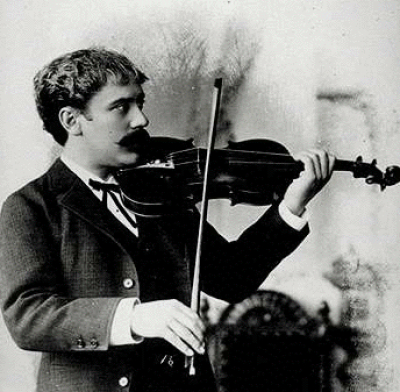Playlist 12 April 2020 |
Recording Details |
|
| Rhythm and Blues – Philip Sparke | Opening for weekly show Foden's Band MD: Michael Fowles - 2010 | 'Patrons' Choice III' - CD - Egon CD-SFZ154 - 2010 |
| Triumphal March from Caractacus - Edward Elgar | Desford Colliery Band and Foden's Band MD: Howard Snell - 1984 | 'English Heritage Series Vol 2' - Vinyl - Polyphonic EHS002D -1984 |
| Froissart Overture OP 19 - Edward Elgar arr: Eric Ball | Foden's Band MD: Howard Snell - 1984 | 'English Heritage Series Vol 1' - Vinyl - Polyphonic EHS001D -1984 |
| Tucker - Erik Leidzen | Cornet Soloist Brian Davies with the International Staff Band BM: Lt Col Bernard Adams - June 28, 1965 Live at the Royal Albert Hall London | 'Centenary Festival of Praise' - Vinyl - Regal Zonophone – SLRZ 4010 - 1965 |
| Kumbayah - Traditional arr: Goff Richards | Brighouse and Rastrick Band GMD: Goff Richards - 1996 | 'The Best of Goff Richards' - CD - Obrasso Recording CD 858 - 1996 |
| Norwegian Wood - Lennon and McCartney arr: Howard Snell | IMI Yorkshire Imperial Band MD: James Scott - 1989 | 'Pageantry' - CD - Polyphonic Recording QPRL 040D - 1989 |
| Dance of the Rose Maidens from the Ballet 'Gayaneh' - Khachaturian arr: Sandy Smith | Black Dyke MD: Dr Nichols Childs - 2007 | 'Spectacular Classics Volume 6' - C D - Obrasso Recording CD922 - 2007 |
| Godspell - Schwartz arr: Barrie Gott | Brisbane City Temple Band of the Salvation Army (Australia) BM: Barrie Gott - 2002 | 'Swingtime' - CD - B&H Sound Services BCTB2002 - 2002 |
| Slavonica Polka - Vladimir Fuka arr: Henry Miller | Brass Band Berner Oberland (Switzerland) MD: Carlo Balmeli - 2003 | 'Pearls' - CD - Tower Music - 2003 |
| Pendennis - Concert March - Goff Richards | Foden's (Courtois) Band MD: Goff Richards - 1997 | 'Brass Explosion' - CD - Obrasso Records - CD863 - 1997 |
| Purcellian Fantasia - Jan de Haan | Brass Band Immanuel Eesmond (The Netherlands) MD: Jan Werkman - 2017 | '4th Section National Brass Band Championships The Netherlands' - 2017 |
| Rhapsody for Trumpet - Colin Skinner | Trumpet Soloist Mike Lovatt with the Foden's Band MD: Michael Fowles - 2018 | 'Mike Lovatt 56 Degrees North' - CD - Mike Lovatt Recording - 2018 |
| The Police Academy - March - Robert Folk arr: Frank Bernaerts | Brass Band Willebroek (Belgium) MD: Frans Violet - 2002 | 'Sparkling Brass' - CD - Bernaerts Recording 2002.023 - 2002 |
| Cristo Redentor - Steven Ponsford | Mississauga Temple Band of the Salvation Army (Canada) BM: ??? - 20012 | 'Jubilance' - CD - MTB Recording - 2012 |
| Introduction and Tarantella - Pablo de Sarasate arr: Luc Vertommen | Euphonium Soloist Steven Mead with the Brass Band Buizingen (Belgium) MD: Luc Vertommen - 2006 | 'Euphonium Virtuoso' - CD - Boocchino Music – BOCC 107 - 2006 |
| Gladiator Barbarian - Hans Zimmer /Lisa Gerrard arr: Sandy Smith | Grimethorpe Colliery UK Coal Band MD: Garry Cutt - 2001 | 'Movie Brass' - CD - RCA Victor 74321 88393 2 - 2001 |
| Romance From 'The Gadfly' - Dmitri Shostakovich arr. Derek Broadbent | Foden's Band MD: Michael Fowles - 2010 | 'Patron's Choice III - Egon Recording SFZ 154 - 2010 |
| Cartoon Classics arr: Andrew Duncan | Whitburn Band MD: Andrew Duncan - 2004 | 'Reflections of Freedom' - CD - SFORZA - SFZ122CD - 2004 |
| Death or Glory - Robert Browne Hall | Black Dyke Mills Band MD: Michael Antrobus - 2002 | 'World Famous Marches' - CD - Chandos Recording CHAN 6565 - 2002 |
| Rhythm and Blues – Philip Sparke | Closing for weekly show Foden's Band MD: Michael Fowles - 2010 | 'Patrons' Choice III' - CD - Egon CD-SFZ154 - 2010 |
Sunday Bandstand 12 April 2020

Pablo de Sarasate - March 10, 1844 – September 20, 1908 was a Spanish violin virtuoso and composer of the Romantic period. He was born in Pamplona, the son of an artillery bandmaster. Apparently, after seeing his father struggle with a passage for a long time, he picked up the violin and played it perfectly. He began studying the violin with his father at the age of five and later took lessons from a local teacher. His musical talent became evident early on and he appeared in his first public concert at the age of eight.
His performance was well-received and caught the attention of a wealthy patron who provided the funding for him to study in Madrid and later at the Paris Conservatoire at the age of 12.
There, at 17 he entered a competition for the Premier Prix and won his first prize, the Conservatoire's highest honour.
He made his Paris debut as a concert violinist in 1860 and played in London the following year. Throughout his career, he toured many parts of the world, performing in Europe, North America, and South America. His artistic pre-eminence was due principally to the purity of his tone, which was free from any tendency towards the sentimental or rhapsodic, and to that impressive facility of execution that made him a virtuoso. In his early career, he performed mainly opera fantasies, most notably the Fantasia, and various other pieces that he had composed.
He died in Biarritz, France, on September 20, 1908, from chronic bronchitis. He bequeathed his violin, made by Stradivari in 1724, to the Musée de la Musique. The violin now bears his name as the Sarasate Stradivarius in his memory. The Pablo Sarasate International Violin Competition is held in Pamplona.
In 1900 he wrote his Introduction and Tarantella for solo violin and orchestra. On this show, we feature that solo arranged as a euphonium solo played by Steven Mead.



















